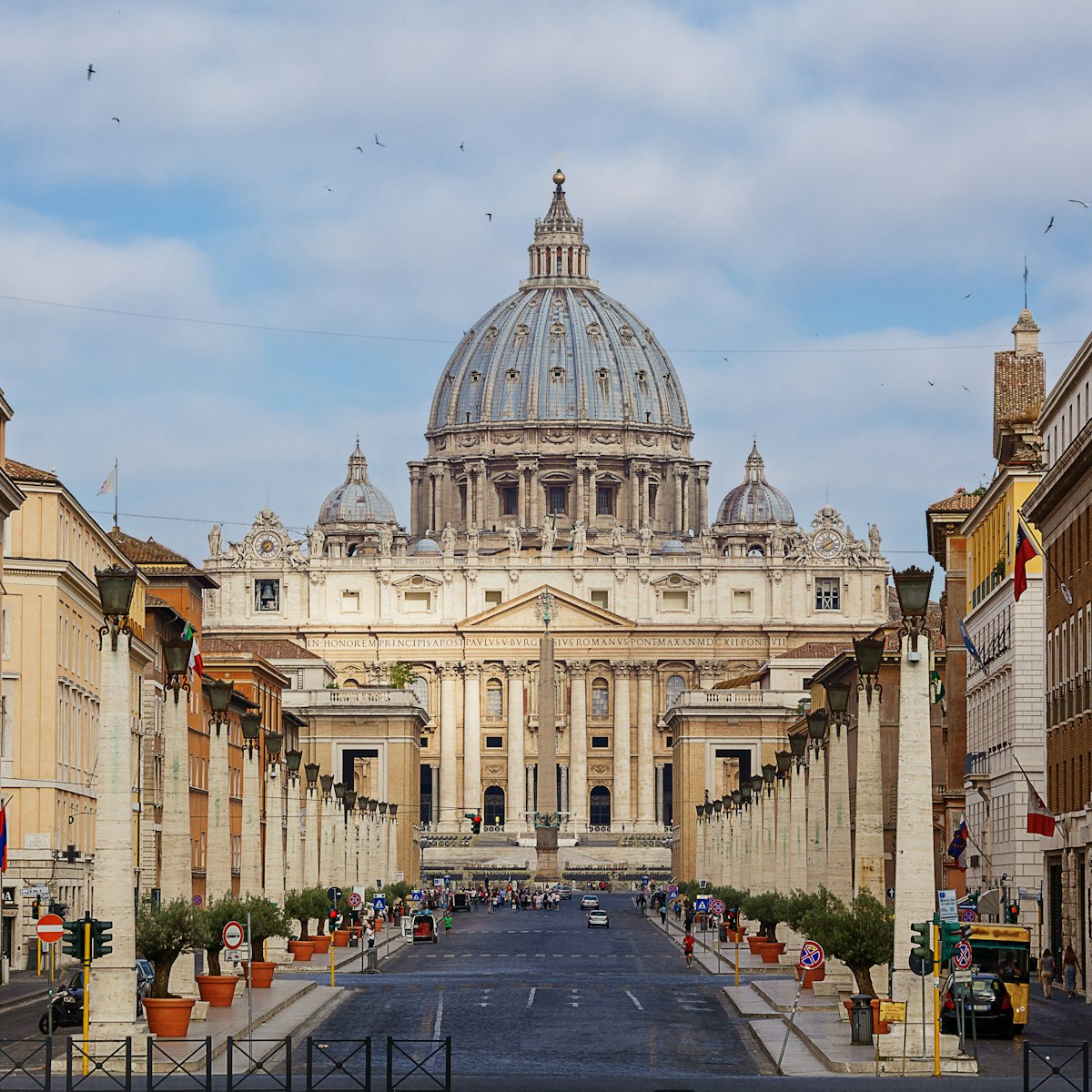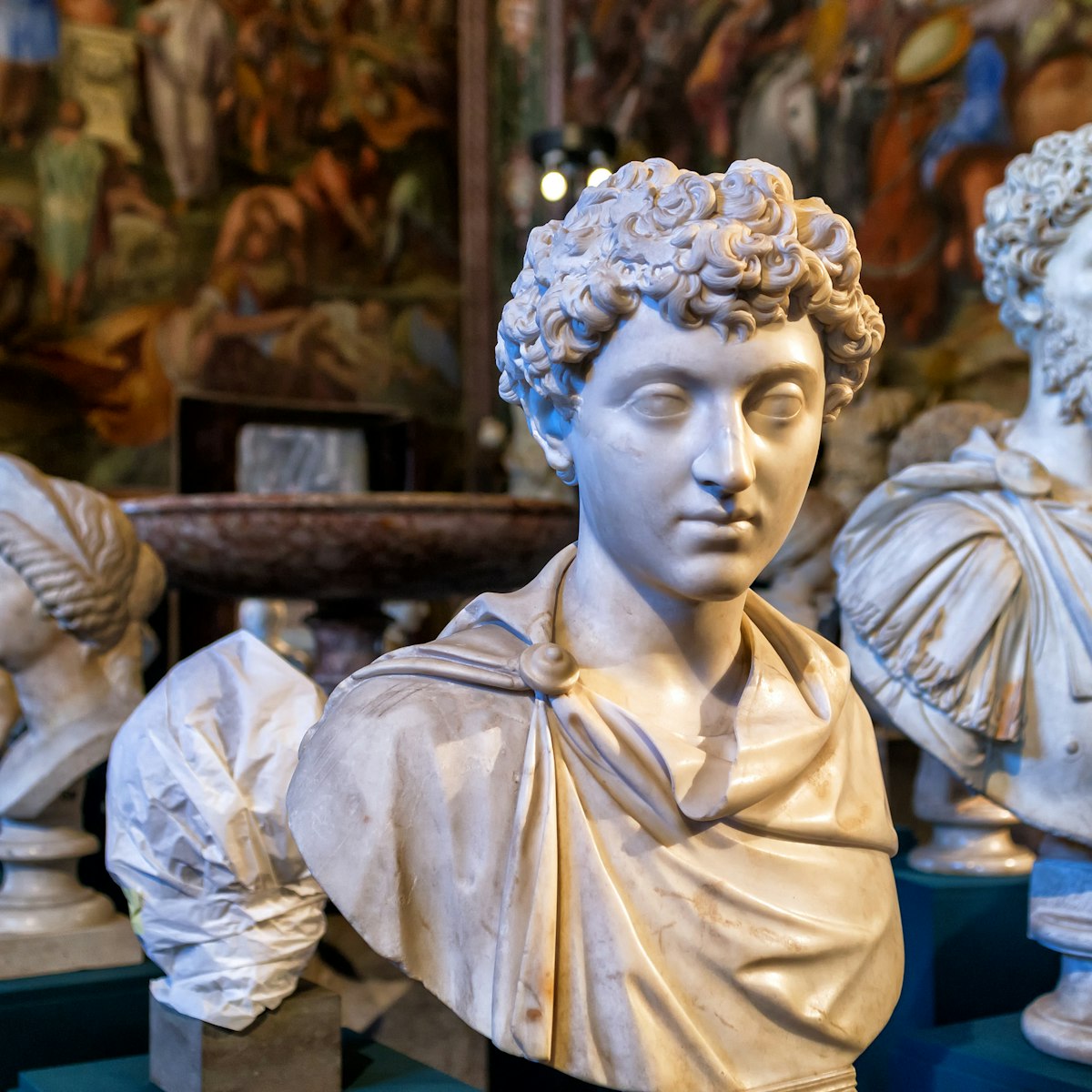With its chunky round keep, this castle is an instantly recognizable landmark. Built as a mausoleum for the emperor Hadrian, it was converted into a papal fortress in the 6th century and named after an angelic vision that Pope Gregory the Great had in 590. Nowadays, it is a moody and dramatic keep that houses the Museo Nazionale di Castel Sant'Angelo and its grand collection of paintings, sculpture, military memorabilia and medieval firearms.
Many of these weapons were used by soldiers fighting to protect the castle, which, thanks to a 13th-century secret passageway to the Vatican (Passetto di Borgo), provided sanctuary to many popes in times of danger. Most famously, Pope Clemente VI holed up here during the 1527 sack of Rome.
The castle's upper floors are filled with elegant Renaissance interiors, including the lavish Sala Paolina with frescoes depicting episodes from the life of Alexander the Great. Two storeys up, the terrace, immortalized by Puccini in his opera Tosca, offers unforgettable views over Rome and has a busy little cafe (snacks €2.50 to €5).
Tips and other practicalities
Tickets to Castel Sant’Angelo cost €13 and allow access to exhibits spread across seven floors, including the historic underground prisons built under the orders of Pope Alexander VI and the Museo Nazionale featuring collections of medieval ceramics, ancient weaponry, and sculptures. Don't miss the spectacular views of the city from the top floor.
Castel Sant’Angelo is closed on Mondays. Ticket prices may increase during temporary exhibitions.
Spanning the Tiber river in front of the castle is the five-arched Ponte Sant’Angelo on whose sides 10 marble angels built by prominent artists stand, creating a picturesque frame around Castel Sant’Angelo, (best photographed in the early morning). Two of the angels – the Angel with the Crown of Thorns and the Angel with the Superscription – are copies of Gian Lorenzo Bernini’s works that once stood here. The originals are exhibited at the Sant'Andrea delle Fratte basilica.
Restaurants and bars nearby
For an aperitivo or late night cocktail head to Freeda, a little bar hidden on a side street steps away from Castel Sant’Angelo serving tasty drinks and charcuterie boards. For a plate of pasta served directly in the pan, cross the bridge and take a seat at one of the outdoor tables of La Fraschetta di Castel Sant’Angelo overlooking the castle.









